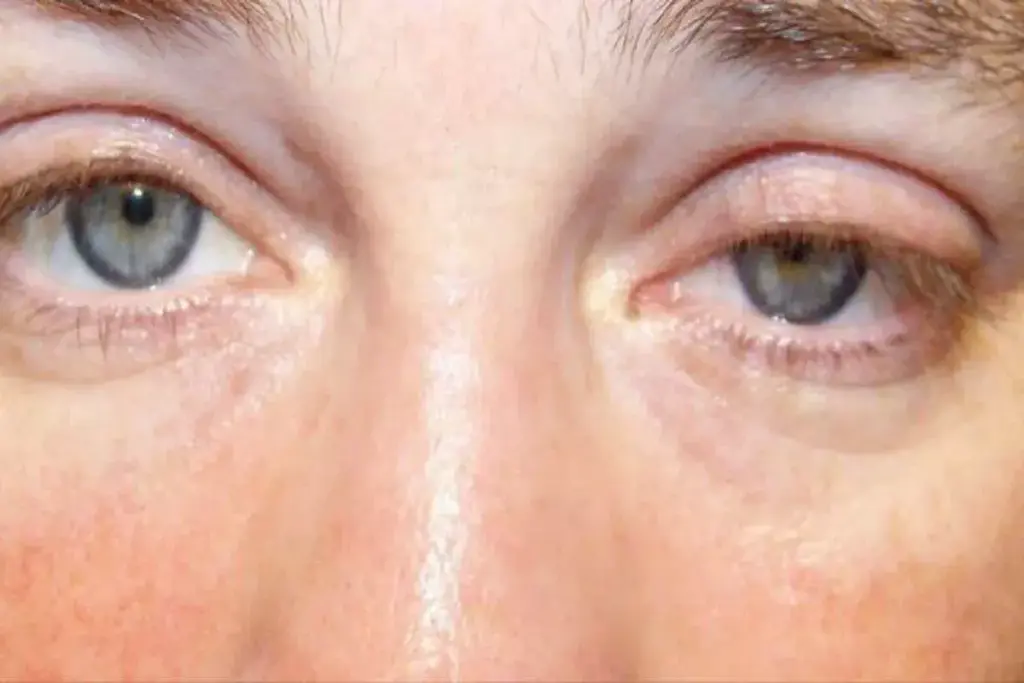Learn who is ineligible for this treatment. Find out if can immunotherapy cure stage 4 cancer patients and who is excluded from this advanced therapy.
Immunotherapy has changed how we treat many cancers, including advanced stage 4 cancer. But, it’s important to know it’s not for everyone.
At Livhospital.com, we know about 15“20% of patients can’t get immunotherapy because of certain reasons. Our goal is to give top-notch medical care. We follow global standards and ethics.

We aim to support international patients fully. In this article, we’ll look at the limits of immunotherapy for stage 4 cancer patients. We’ll also talk about who can get this treatment.
Key Takeaways
- Immunotherapy is not a one-size-fits-all solution for cancer treatment.
- Certain patients may be excluded due to contraindications.
- Careful patient selection is key for successful immunotherapy.
- Approximately 15“20% of eligible patients are excluded from immunotherapy.
- Knowing the limits of immunotherapy is important for patient safety.
The Mechanism Behind Immunotherapy
Immunotherapy is a way to treat stage 4 cancer by using the immune system. The immune system has cells and proteins that fight off harmful substances, like cancer cells. It’s like a defense team for our body.
“The immune system is our body’s first line of defense against cancer,” and immunotherapy enhances this natural defense mechanism. By boosting the immune system’s ability to recognize and attack cancer cells, immunotherapy offers a promising approach to cancer treatment.
How the Immune System Fights Cancer
The immune system fights cancer through a complex process. It involves different cell types, like T-cells and B-cells. T-cells can kill cancer cells directly, while B-cells make antibodies to mark them for destruction. Immunotherapy enhances these natural processes.

Types of Immunotherapy Treatments Available
There are several types of immunotherapy treatments. Each works in a unique way. These include:
- Immune Checkpoint Inhibitors: These work by releasing the brakes on the immune system, allowing it to attack cancer cells more effectively.
- Adoptive Cell Therapy: This involves removing T-cells from the patient’s body, modifying them to recognize cancer cells, and reinfusing them back into the body.
- Monoclonal Antibodies: These are laboratory-made antibodies that target specific proteins on cancer cells, helping the immune system to recognize and destroy them.
By understanding the different types of immunotherapy and how they work, patients and healthcare providers can make informed decisions about treatment options.
Can Immunotherapy Cure Stage4 Cancer? The Reality
Whether immunotherapy can cure stage 4 cancer is a complex issue. It depends on many factors. Immunotherapy has shown promise in treating different cancers, but its success in stage 4 varies a lot.

At Livhospital.com, we know every patient is different. We customize our treatments to fit each person’s needs. The success of immunotherapy in stage 4 cancer depends on several important factors.
Success Rates in Advanced Metastatic Disease
Immunotherapy’s success in treating advanced metastatic disease is not the same for everyone. Some patients see a big reduction in tumors, while others don’t respond as well.
- Types of Cancer: Some cancers, like melanoma and lung cancer, respond better to immunotherapy.
- Patient Health: A patient’s overall health is key to how well immunotherapy works.
- Previous Treatments: Patients who have had treatments before may have different results than those who haven’t.
Factors That Influence Treatment Effectiveness
Several things affect how well immunotherapy works for stage 4 cancer, including:
- Cancer Type and Stage: The type and stage of cancer are very important in determining immunotherapy’s success.
- Patient’s Overall Health: Patients with fewer health problems and better overall health tend to do better.
- Genetic Mutations: Certain genetic changes can affect how well a patient responds to immunotherapy.
Understanding these factors is key to setting realistic hopes and making informed choices about immunotherapy for stage 4 cancer.
Patients with Autoimmune Disorders
Immunotherapy is a game-changer, but it’s not for everyone, mainly those with autoimmune disorders. These disorders happen when the immune system attacks healthy body tissues by mistake. Immunotherapy boosts the immune system, which can make autoimmune conditions worse.
Why Autoimmune Conditions Conflict with Immunotherapy
Immunotherapy can be risky for people with autoimmune disorders. It can make the immune system too active, leading to worse autoimmune diseases. For example, treatments that block certain immune checks can cause too much immune activity. This can make conditions like rheumatoid arthritis or multiple sclerosis worse.
At Livhospital.com, we work with each patient to create a treatment plan that fits their needs. We know every patient is different, so we tailor our approach to manage the risks of immunotherapy.
Specific Autoimmune Diseases of Concern
Some autoimmune diseases are more concerning when it comes to immunotherapy. These include:
- Rheumatoid Arthritis: This condition causes inflammation in the joints, which can lead to serious damage if not treated right.
- Multiple Sclerosis: It affects the central nervous system, causing significant neurological problems.
- Lupus: A systemic disease that can harm various body parts, like the skin, joints, and organs.
For patients with these diseases, weighing the risks of immunotherapy against its benefits is key. Sometimes, other treatments might be better.
Respiratory Conditions as Contraindications
For those thinking about immunotherapy, some respiratory issues can be risky. This treatment uses the body’s immune system to fight cancer. But, if you already have breathing problems, it might not work well.
We look at each patient’s health history to see if immunotherapy is right for them. Some breathing issues can make treatment more dangerous. So, we check these conditions before starting.
Uncontrolled Asthma Patients
For people with uncontrolled asthma, immunotherapy is a big worry. Asthma makes breathing hard by inflaming and tightening airways. This can get worse with immunotherapy, leading to serious attacks. Those with uncontrolled asthma face a higher risk of breathing problems.
- Checking how bad your asthma is before starting treatment is key.
- If your asthma is well-managed, you might be able to get immunotherapy with careful watching.
- You might need to adjust your asthma treatment before starting immunotherapy.
Interstitial Lung Disease and Other Pulmonary Concerns
ILD and other lung issues can also stop you from getting immunotherapy. ILD causes lung tissue inflammation and scarring. This can get worse with immunotherapy, leading to serious problems.
People with ILD or other lung problems need a detailed check-up. We look at how bad their condition is and the risks of immunotherapy. Sometimes, safer treatments are better.
- The severity of their respiratory condition.
- The chance that immunotherapy could make things worse.
- Looking at other treatments that might be safer and work better.
At Livhospital.com, we always put patient safety and treatment success first. For those with breathing problems, we take a custom approach to get the best results.
Pregnancy and Reproductive Considerations
Immunotherapy is a new way to fight cancer, but it raises big questions for pregnant women and those thinking about starting a family. We need to talk about how immunotherapy affects pregnancy and fertility.
Risks to Pregnant Women and Developing Fetuses
Immunotherapy can be risky for pregnant women and their babies. It boosts the immune system to fight cancer, which might hurt the baby or make pregnancy harder. It’s key for pregnant women or those planning to get pregnant to talk to their doctor about these risks.
Some studies show that certain immunotherapies might lead to problems like early labor or babies that are too small. We don’t know all the long-term effects on babies yet. So, it’s best for patients to avoid getting pregnant while they’re getting this treatment.
Fertility Preservation and Family Planning Options
For those getting immunotherapy, thinking about fertility and family planning is very important. The treatment might affect fertility, which is a big worry for young patients. We care about keeping fertility alive and offer full care to meet these needs.
There are ways to save fertility, like freezing eggs or sperm, embryos, or ovarian tissue. Patients should talk to their doctor about these choices before starting treatment. There are also resources and support for family planning to help with reproductive health decisions.
At Livhospital.com, we support our patients at every step, including helping with fertility and family planning.
Medication Conflicts and Interactions
When thinking about immunotherapy, it’s key to know how some medicines can affect it. Immunotherapy boosts the body’s immune system. But, other drugs might make it harder or riskier.
We stress the need to tell us about all medicines you’re taking. This helps us avoid risks and tailor treatments just for you. Some drugs, like beta-blockers and corticosteroids, can really change how well immunotherapy works or raise the chance of problems.
Beta-Blockers and Immunotherapy Incompatibility
Beta-blockers help with heart issues but might mess with immunotherapy. Studies show they could alter how the immune system reacts. But, how much this happens can differ from person to person.
- Potential Risks: Reduced efficacy of immunotherapy
- Management: Close monitoring and adjustment of beta-blocker dosage may be necessary
Corticosteroids and Their Impact on Treatment
Corticosteroids fight inflammation but can weaken the immune system. When used with immunotherapy, they might lessen the immune boost that therapy aims to give.
Key Considerations:
- The dosage and duration of corticosteroid use can influence immunotherapy’s effectiveness.
- Alternative treatments for conditions requiring corticosteroids should be explored.
Other Medications That May Cause Complications
Other drugs can also mix with immunotherapy. These include:
- Immunosuppressive drugs
- Certain antibiotics and antivirals
- Medications that affect the liver or kidney function
It’s vital for patients to talk to their doctors about these possible issues. At Livhospital.com, we aim to give top-notch care. This includes managing medicines carefully to help our patients get the best results from immunotherapy.
Immunocompromised Individuals
Immunotherapy for those with weakened immune systems needs careful planning. This includes people with HIV/AIDS, cancer patients on chemotherapy, and those who have had organ transplants. Each group faces unique challenges with immunotherapy.
HIV/AIDS Patients and Treatment Challenges
HIV/AIDS patients face special challenges with immunotherapy. Their immune systems may not react well, and treatment could worsen their condition. We carefully decide if immunotherapy is right for them, sometimes adjusting their HIV treatment to reduce risks.
Cancer Patients Undergoing Chemotherapy
Cancer patients on chemotherapy also need careful consideration. Chemotherapy weakens the immune system, making immunotherapy tricky. We plan the timing and order of treatments to improve results and reduce side effects.
Organ Transplant Recipients on Anti-Rejection Drugs
Organ transplant patients on anti-rejection drugs are a complex case. Immunotherapy could affect their medications, leading to graft rejection or other issues. We collaborate with transplant experts to manage these risks and create a detailed treatment plan.
In summary, immunocompromised individuals need a customized approach to immunotherapy. By understanding the unique challenges of HIV/AIDS patients, cancer patients on chemotherapy, and organ transplant recipients, we can offer safer and more effective treatments.
History of Severe Allergic Reactions
When thinking about immunotherapy, a patient’s history of severe allergic reactions is key. Those who are highly sensitive to certain substances might face higher risks during treatment.
Previous Hypersensitivity to Biological Agents
Biological agents in immunotherapy can cause severe allergic reactions in some people. Hypersensitivity reactions can vary from mild to very dangerous. It’s vital to check a patient’s allergy history before starting treatment.
“Immunotherapy for those with severe allergy history needs careful thought and watchfulness,” says a top oncology expert. “We must consider the benefits against the chance of another severe reaction.”
Risk Assessment and Management Protocols
At Livhospital.com, we use strict risk assessment protocols to spot patients at risk of severe allergic reactions to immunotherapy. We look at their medical history, do allergy tests, and talk to allergy specialists when needed.
- Detailed medical history to identify previous allergic reactions
- Allergy testing to assess current sensitivities
- Collaboration with specialists to develop a personalized treatment plan
We carefully check risks and use the right management plans. This way, we lower the chance of severe allergic reactions. We make sure our patients get the safest and most effective care.
Age and Performance Status Limitations
When we talk about stage 4 cancer treatment, age and performance status are key. These factors help doctors decide the best treatment for each patient. As we learn more about cancer treatment, understanding these factors is more important than ever.
Immunotherapy is a promising treatment for many cancers. But, it’s not right for everyone. The patient’s age and how well they can handle treatment are important. These factors help doctors know if a patient can handle the treatment’s side effects.
Elderly Patients and Treatment Tolerance
Elderly patients face special challenges in cancer treatment. As people get older, their health and organs can weaken. This makes them more likely to have side effects from immunotherapy. We carefully check the health of older adults to see if immunotherapy is right for them. We look at their health, organ function, and how well they can recover from side effects.
“The elderly population is not a homogeneous group; physiological age can differ significantly from chronological age,” experts say. This shows why we need a personalized approach for elderly patients considering immunotherapy.
ECOG Performance Status Requirements
The Eastern Cooperative Oncology Group (ECOG) performance status helps doctors understand how well a patient can take care of themselves. ECOG performance status is a key factor in deciding if a patient can have immunotherapy. Patients with a higher ECOG score may not be good candidates because the risks might be too high.
We use the ECOG performance status to see if a patient can handle immunotherapy. A score of 0 or 1 usually means a patient can tolerate it well. But, we look at each patient’s health and cancer type individually.
By looking closely at age and performance status, we can find the right patients for immunotherapy. This careful approach is part of our commitment to top-notch healthcare for every patient.
Alternative Treatment Options for Ineligible Patients
Patients who can’t have immunotherapy have other cancer treatment options. Immunotherapy has changed cancer care a lot. But, there are other good choices for those who can’t have it.
Conventional Cancer Therapies
Older cancer treatments are very important. They include:
- Chemotherapy: Drugs kill cancer cells. It’s used for many cancers.
- Radiation Therapy: Rays kill cancer cells. It’s a common treatment.
- Surgery: Tumors are removed. It’s often the first treatment for some cancers.
These treatments can be used alone or together. It depends on the patient’s cancer and situation.
Emerging Treatments with Fewer Contraindications
New treatments give hope to those who can’t have immunotherapy. Some of these are:
- Targeted Therapy: Drugs target cancer cells without harming healthy ones.
- Hormone Therapy: It slows or stops hormone-sensitive cancers from growing.
- CAR-T Cell Therapy: It’s a special immunotherapy that changes T cells to fight cancer.
These new treatments are being studied and improved. They offer more choices for patients.
Clinical Trials for Special Populations
Clinical trials offer new treatments for those who don’t respond to usual therapies. They’re key for special groups, like:
- Patients with Rare Cancers: Trials can offer treatments for rare cancers.
- Patients with Comorbidities: Trials include patients with other health issues. They help find safe and effective treatments.
Joining clinical trials can give patients new treatments. It also helps improve cancer care for everyone.
At Livhospital.com, we help patients find the right treatment. Our team works hard to give personalized care and support. We’re with you every step of the way.
Screening and Eligibility Protocols
We have strict screening protocols for immunotherapy candidates at Livhospital.com. We know immunotherapy isn’t right for everyone. So, picking the right patients is key.
Required Medical Tests Before Starting Immunotherapy
Patients must pass several medical tests before starting immunotherapy. These tests check if they can safely get the treatment.
- Imaging studies: To see how far cancer has spread and if organs are working right.
- Laboratory tests: To find any blood issues that might stop them from getting immunotherapy.
- Cardiac evaluations: To make sure their heart is strong enough for treatment.
Doctors say a detailed check is vital. It helps find who can really benefit from immunotherapy and keeps risks low.
“The key to successful immunotherapy lies in meticulous patient selection and tailored treatment plans.”
Livhospital.com’s Ethical Standards for Patient Selection
At Livhospital.com, we follow strict ethical rules for choosing patients. Our team looks at many things, like:
- The patient’s health and medical history.
- The cancer’s stage and type.
- What treatments they’ve had before and how they did.
We promise to be open and fair in choosing patients. We want to make sure each patient gets the best care. As we always say, “Compassion and expertise go hand-in-hand in delivering world-class healthcare.”
International Best Practices for Immunotherapy Eligibility
We follow the best international rules for who can get immunotherapy. We keep up with new research and guidelines from top cancer groups. This way, our patients get the safest and most effective treatments.
In conclusion, our strict screening and rules help make immunotherapy better for patients. We use the latest medical tests and fair patient selection. Our goal is to give the best care possible.
Conclusion: Making Informed Decisions About Immunotherapy
Immunotherapy has changed how we treat cancer, giving hope to many. But, it’s not right for everyone. We’ve looked at its limits and risks, like not working with some health issues or medicines.
At Livhospital.com, we help our patients make smart choices about treatment. We check if immunotherapy fits their needs and health. Our team is dedicated to supporting our patients, aiming for the best results.
Understanding immunotherapy’s good and bad points is key. Patients and doctors must talk about the risks and benefits. They consider health history, current condition, and treatment goals. This way, patients can choose wisely and get the best treatment.
FAQ
How does immunotherapy work?
Immunotherapy boosts the immune system’s power to fight cancer. It helps the body recognize and attack cancer cells.
Can immunotherapy cure stage4 cancer?
Immunotherapy’s success in treating stage4 cancer depends on several factors. These include the cancer type and the patient’s health.
Why are patients with autoimmune disorders not eligible for immunotherapy?
Patients with autoimmune disorders might not be good candidates for immunotherapy. It could make their conditions worse. Diseases like rheumatoid arthritis and multiple sclerosis are hard to manage with this treatment.
Can patients with respiratory conditions undergo immunotherapy?
Some respiratory issues, like uncontrolled asthma and interstitial lung disease, can make immunotherapy risky. People with these conditions might not be able to get it.
Is immunotherapy safe for pregnant women?
Immunotherapy can be risky for pregnant women and their unborn babies. Doctors advise against getting pregnant while on this treatment.
Can immunotherapy interact with other medications?
Yes, some medicines, like beta-blockers and corticosteroids, can affect how well immunotherapy works. They might also increase the risk of side effects.
Are immunocompromised individuals eligible for immunotherapy?
People with weakened immune systems, like those with HIV/AIDS or cancer patients on chemotherapy, face special challenges. They might not do well with immunotherapy.
What are the risks associated with a history of severe allergic reactions?
Those who have had severe allergic reactions, and are sensitive to biological agents, could face more risks. Immunotherapy might not be safe for them.
Can elderly patients tolerate immunotherapy?
Older adults might need extra care because they could be more prone to side effects. Immunotherapy’s impact on them needs careful consideration.
What are the alternative treatment options for patients ineligible for immunotherapy?
For those who can’t have immunotherapy, there are other options. These include traditional cancer treatments, newer treatments with fewer side effects, and clinical trials.
How is patient eligibility for immunotherapy determined?
Doctors check if someone can have immunotherapy by doing tests and looking at their overall health. This helps decide if it’s safe and effective.
Why hasn’t cancer been cured despite advancements in immunotherapy?
Cancer is a complex disease. Immunotherapy has shown promise, but it’s not a cure-all. The type of cancer and the patient’s health play big roles in how well it works.
Can immunotherapy make cancer worse?
In some cases, immunotherapy can make cancer worse or cause other problems. It’s important to carefully choose who gets it and to watch them closely.
How does Keytruda work?
Keytruda is a type of immunotherapy. It helps the immune system fight cancer by removing the brakes that hold it back.
Is immunotherapy changing cancer treatment forever?
Yes, immunotherapy has changed cancer treatment a lot. It offers new hope for many patients. Ongoing research keeps improving cancer care.
References
- European Society for Medical Oncology (ESMO). (2025). Squamous-cell carcinoma with contraindication for immunotherapy. https://www.esmo.org/guidelines/living-guidelines/esmo-living-guideline-non-oncogene-addicted-metastatic-non-small-cell-lung-cancer/management-with-systemic-therapy/squamous-cell-carcinoma-with-contraindication-for-immunotherapy
- Cancer Research UK. (2025). Immunotherapy and its side effects. https://www.cancerresearchuk.org/health-professional/treatment-and-other-post-diagnosis-issues/immunotherapy-and-its-side-effects
- Tan, S., & Sidaway, P. (2020). Cancer immunotherapy: Pros, cons, and beyond. Cancer Treatment Reviews, 89, 102030. https://www.sciencedirect.com/science/article/pii/S0753332220300111










